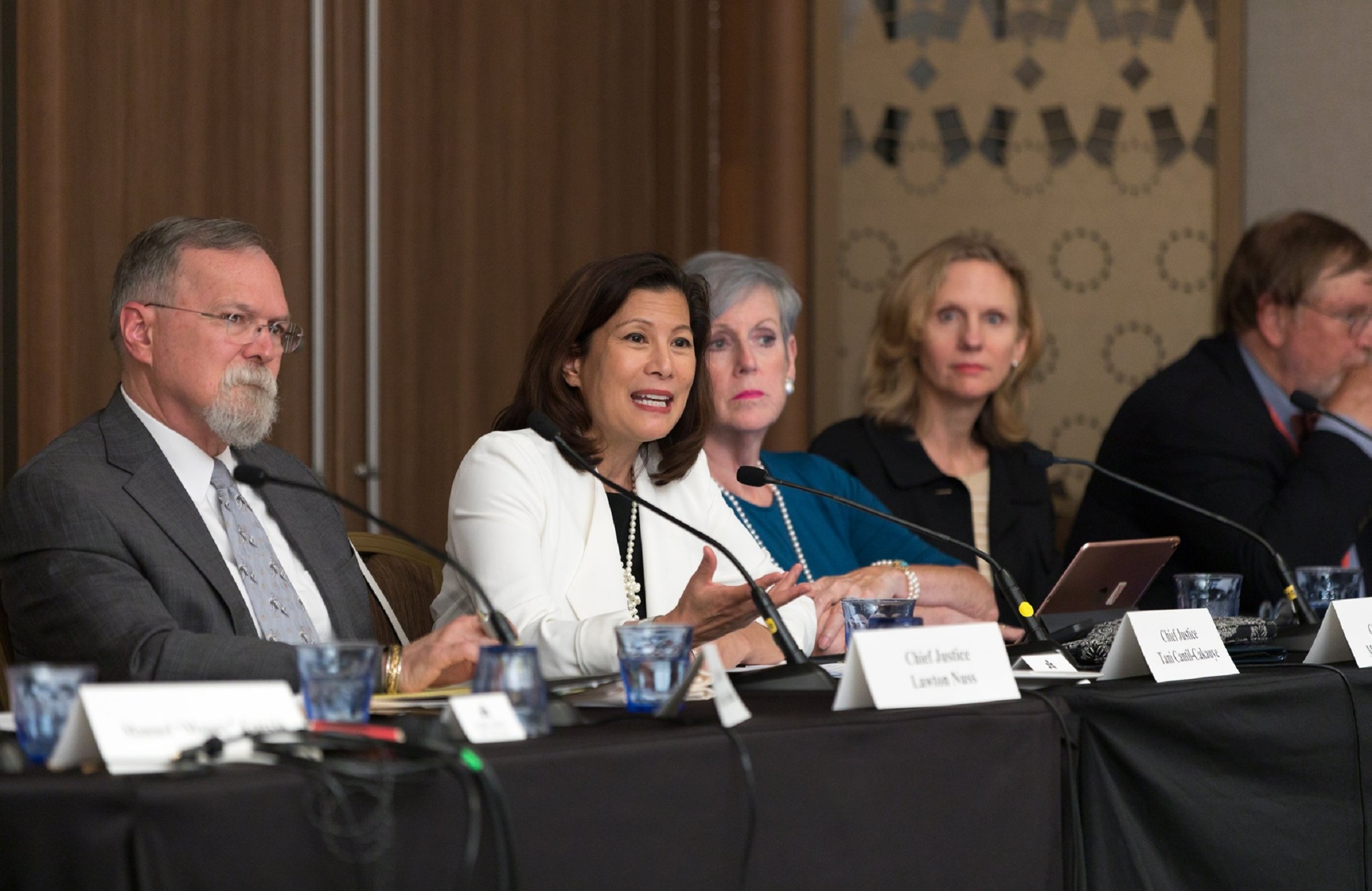
This Friday, during the American Bar Association’s annual meeting in San Francisco, a panel featuring two federal judges and three chief justices of state supreme courts, including California’s chief, Tani Cantil-Sakauye, will discuss continuing efforts to undermine public confidence in the judiciary.
Those efforts include verbal assaults by President Trump, Russian disinformation campaigns, dark-money-funded attack ads, and partisan legislation aimed at reducing the power of judges that is being considered at the state level.
What: Undermining the Courts: The Consequences for American Democracy, a nonpartisan roundtable discussion
When: Friday, August 9, 2019, 3:30 p.m. to 5 p.m.
Where: Hotel Nikko San Francisco, 222 Mason Street, Nikko Ballroom I, 3rd Floor
The panelists:
Chief Justice Tani Cantil-Sakauye, California Supreme Court
Chief Justice Maureen O’Connor, Ohio Supreme Court
Chief Justice Lawton Nuss, Kansas Supreme Court
Justice Debra Stephens, Washington Supreme Court
Senior U.S. District Court Judge James Robart, Western District of Washington
U.S. District Court Judge Shira A. Scheindlin (Ret.), Southern District of New York
Judge Robart is the judge who was labeled a “so-called judge” by President Trump in 2017 for blocking one of the president’s proposed travel bans on constitutional grounds.
This nonpartisan event will be moderated by Manny Garcia, Ethics and Standards Editor for USA Today Network.
The program is being presented by the ABA Standing Committee on the American Judicial System and The National Judicial College as part of the committee’s annual symposium on the independence of the judiciary.
###
Based in Reno, Nevada, but teaching judges and other court personnel throughout the United States and overseas, The National Judicial College is the nation’s oldest, largest and most widely attended school for judges. The categories of judges served by the NJC decide more than 95 percent of the cases in this country. Nonprofit and nonpartisan since its founding in 1963, the College is dedicated to making the world a more just place by educating and inspiring its judiciary.

CHICAGO – The American Bar Association Judicial Division announced recently that TheNational Ju...

The National Judicial College is mourning the loss of former faculty member Judge Duane Harves, who passed ...

As the world manages an evolving natural environment, The National Judicial College announced today that it...

Do’s Manage your cases systematically Devise a system that works for you and your organizational...

After 22 years of teaching judges, Tennessee Senior Judge Don Ash will retire as a regular faculty member a...